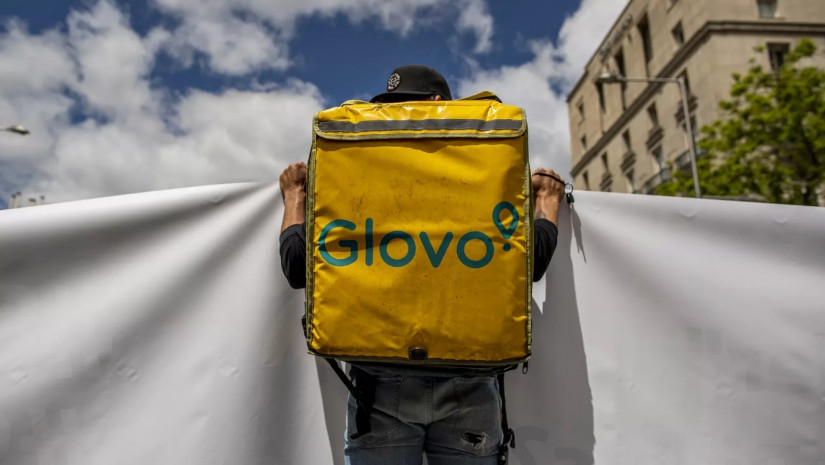A group of member states blocked on Friday a law designed to improve the conditions of platform workers across the European Union, pushing the legislation to the brink of limbo.
The coalition was large enough to act as a blocking minority and derail the political agreement reached last week between the Council and the European Parliament.
Germany, the bloc's most powerful state and host of Delivery Hero and Free Now, chose to abstain, complicating the arithmetic to obtain the required level of support.
Greece and Estonia also abstained, while France, a vigorous opponent of the law, said it could not support the text on the table, Euronews learned through diplomats who spoke on condition of anonymity.
The deal was considered the last chance for the law to get across the finish line during this legislative session due to the cut-off date imposed by the upcoming EU elections.
Friday's debacle had a strong sense of déjà vu as an almost identical scenario had happened in late December when the original agreement between Council and Parliament was derailed by a larger-than-expected group that included France, the Czech Republic, Ireland, Greece, Finland, Sweden and the three Baltic states, all of which are governed by either right-wing or liberal parties.
Even if some countries, like the Czech Republic and Ireland, eventually switched to the positive side, the outcome among ambassadors was the same: the compromise brokered by the institutions is, once again, in tatters.
Belgium, the current holder of the Council's presidency, announced the news in a short post on social media.
"We believe that this directive, aiming to be an important step forward for this workforce, has come a long way," the presidency said. "We'll now consider the next steps."
Nicolas Schmitt, the European Commissioner for Jobs and Social Rights, called the rejection "deeply disappointing" and defended his proposal.
"The Commission still firmly believes in the need to improve gig workers' terms and conditions and create a level playing field across the Union," Schmit said.
Elisabetta Gualmini, the socialist MEP in charge of the file, said Friday's decision was "incomprehensible" and directly accused France, Germany, Estonia and Greece of "turning their backs" on millions of "vulnerable and exploited" workers.
First presented in 2021, the Platform Work Directive (PWD) is meant to improve the working conditions of those who service popular apps such as Uber, Deliveroo and Glovo and are often treated as self-employed despite being under rules similar to ordinary employees. The tension between platforms and workers has triggered numerous complaints and court cases at the national level, prompting the European Commission to draft a durable scheme for all 27 member states.
The directive's centrepiece is a novel system of legal presumption that would readjust the status of platform workers if they meet a certain number of criteria, or indicators, in their day-to-day businesses, such as being forbidden from servicing a competitor app or being compelled to follow norms on appearance, conduct and performance.
Brussels estimates that about 5.5 million of the 28 million platform workers currently active in the European Union are misclassified and would therefore fall under the legal presumption. Doing so would make them entitled to rights like minimum wage, collective bargaining, work-time limits, health insurance, sick leave, unemployment benefits and retirement pensions – on par with any other regular worker.


















